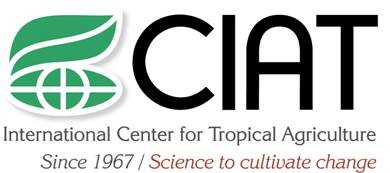WATERBURY, Vt. – Keurig Green Mountain, Inc., in partnership with the International Center for Tropical Agriculture (CIAT) and the Agroecology and Rural Livelihoods Group (ARLG) of the University of Vermont, announced yesterday the results of a 2013 scientific study entitled Thin Months Revisited.
The research reexamines the livelihoods of smallholder coffee-growing families in Mexico, Guatemala and Nicaragua to understand how farmer welfare has changed in comparison with a 2007 baseline study in the same countries.
The 2007 study, led by CIAT researchers with participation from the Keurig Green Mountain Supply Chain Outreach team, was intended to determine the state of affairs for coffee farmers in Latin American communities where the company sources its coffee.
More than 100 smallholder coffee farmers were interviewed about their livelihoods and researchers found that seasonal hunger was a major concern for the company’s agricultural supply chain.
“These results had a sobering effect on us and on many others in the Fair Trade coffee movement,” said Rick Peyser, Director of Social Advocacy and Supply Chain Community Outreach at Keurig Green Mountain.
Sixty-seven percent of the coffee farmers surveyed were experiencing extreme food scarcity for three to eight months of the year, known as the “thin months” or losmeses flacos in Spanish. This refers to a several month period when coffee earnings run out before the next harvest, resulting in a time of seasonal hunger.
In response to these 2007 findings, Keurig Green Mountain established a strategic, research-based and farmer-advised approach to combat food security, with initiatives designed to increase home food production, improve food storage capabilities, provide farmers with tools and training to diversify income, expand access to market and increase coffee yields from better growing practices.
Over the past three years, the company has directed more than $15 million toward food security programming in its supply chain, with a particular focus in the three research countries. Keurig Green Mountain has also galvanized the coffee industry behind this issue through a film called “ After the Harvest .”
In 2013, with the help of ARLG, CIAT and Keurig Green Mountain returned to Mexico, Guatemala and Nicaragua to interview many of the same participants from the original study.
The 2013 results show advancements in food security since 2007, which may be partially attributed to initiatives that companies like Keurig Green Mountain have invested in over the past several years.
“Our study was able to provide a direct link between the projects that Keurig Green Mountain funded and a reduction in the number of thin months experienced by some families in Chiapas and Nicaragua.
In Chiapas specifically, families participating in food security projects decreased the number of thin months twice as much as those who did not participate,” said Ernesto Méndez, UVM professor and lead of the Agroecology and Rural Livelihoods Group (ARLG).
“The new study offers irrefutable evidence that the situation had improved for most families over the last six years, particularly with respect to food security. Across study locations, the average number of thin months has declined from 3.81 in 2007 to 2.83 today,” said Peter Läderach, a CIAT scientist and one of the research leaders.
Some of the improvements revealed in Thin Months Revisited included examples of families who increased their number of income sources, often by incorporating food crops in their farming activities.
By adding more diverse crops that can be consumed or sold, families are more resilient to extreme changes in coffee prices and have steadier incomes year-round.
“Diversifying into other crops helps smooth out household income across the year and makes families more resilient to a volatile coffee market. A more resilient farmer will continue producing coffee and supply us with the quality and quantity we need to grow our business,” said Peyser.
While conditions have improved since 2007, food security and other aspects of social and economic development remain a serious issue in Mexico and Central America.
Not only do many farmers still struggle to get through the “thin months,” but they must also contend with the growing pressure that climate change has put on the natural resources needed by farmers to grow food and coffee.
For this reason, in 2012, Keurig Green Mountain committed more than $5.6 million in grants to food security programs, benefitting over 200,000 individuals throughout their supply chain in partnership with NGOs like CIAT, Catholic Relief Services, Heifer International and Save the Children.
















